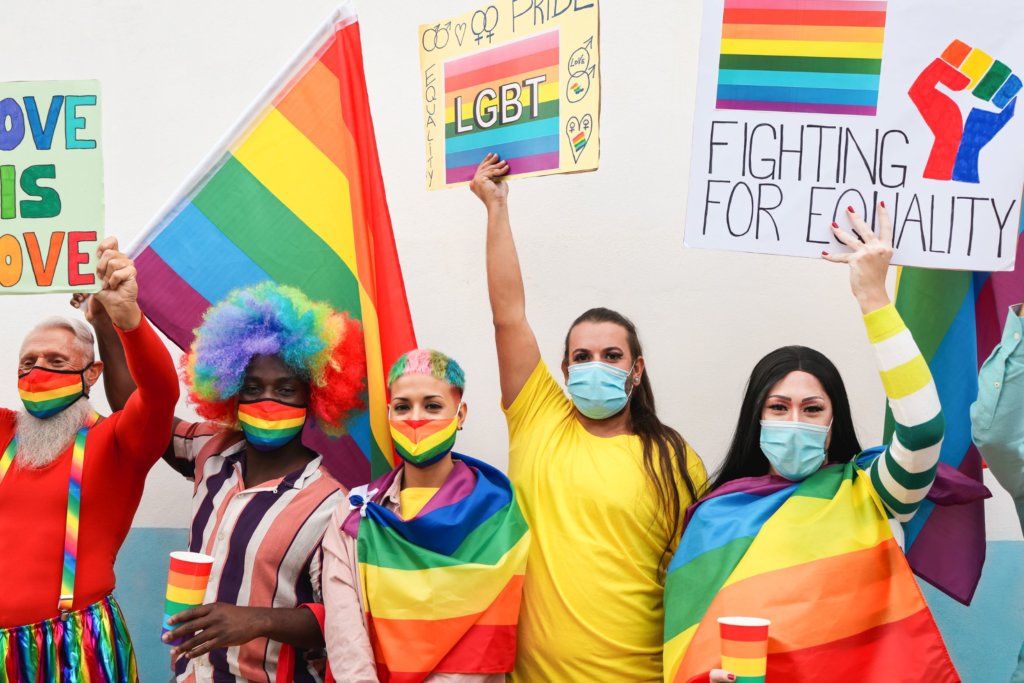UnidosUS Releases a 2021 Latinx LGBTQ+ Fact Sheet to Promote More Inclusive Educational Practices and Policies
Being LGBTQ can be tough in a historical climate of homophobia, and more so if you are also a person of color. With this in mind, UnidosUS has just released a two-page fact sheet to better understand the mental health needs and concerns of students identifying as both Latinx and LGBTQ+.
Data collected from sources such as Cathy Cohen’s Millennial Attitudes on LGBT Issues: Race, Identity, and Experience and GLSEN’s 2019 National School Climate Survey: The Experiences of Lesbian, Gay, Bisexual, Transgender, and Queer Youth in Our Nation’s Schools shows that 22% of Latinx youth identify as LGBTQ+. At the national level, an estimated 68.7% report having experienced verbal harassment in schools based on their sexual orientation, while 25.7% reported physical harassment, such as being pushed or shoved, and 11% reported being victims of physical assault, such as an actual blow or kick to the body. As a result, some 70% of these youth have experienced symptoms of generalized anxiety disorder, 64% experience major depressive disorder, 43% have considered suicide, and 18% have actually attempted suicide. School discipline rates are also higher among this population, with 35.1% experiencing some form of detention, suspension, or expulsion.

“We see that a lot of this bullying and harassment happens due to students’ gender presentation, mannerisms, and style of dress—even if their sexual identity is unknown,” notes UnidosUS Education Policy Analyst Kendall Evans.
Keep up with the latest from UnidosUS
Sign up for the weekly UnidosUS Action Network newsletter delivered every Thursday.
These fears have also contributed to higher rates of absenteeism, a lower likelihood of obtaining a four-year degree, and greater levels of depression. In fact, the factsheet notes that 51.1% of LGBTQ+ Latinx youth say they feel unsafe in school while 35% are more likely to miss school because of that fear. For some, the pressure is so great they simply drop out, and in fact, 2.8% of Latinx LGBTQ+ youth have contemplating doing just that.

But UnidosUS’s education policy team affirms there are plenty of ways to curb these trends at the programmatic and policy level. Its research shows that LGBTQ+ Latinx youth attending schools with Gay-Straight Alliance or GSA clubs are more likely to feel a sense of belonging, and more likely to see and feel safe with the implementation of culturally responsive curricula and support staff. However, these scenarios are far more common in predominately White schools (non-Latinx) than they are in schools with large populations of students of color.

As such the factsheet comes with the following recommendations:
- Encourage schools and districts to fund GSA, ethnic clubs, and other similar programs. These programs help with a positive school climate, greater sense of belonging, and greater participation in activism.
- Urge schools and districts to fund professional development for staff to incorporate inclusive school policies. Positive relationships with school personnel and implementation of inclusive school policies show positive outcomes in school participation and GPAs.
- Urge the Department of Education’s Office of Civil Rights to enforce existing Title IX and Sex Discrimination laws and include sexual orientation and gender identity.
- Urge the Department of Education’s Office of Civil Rights to disaggregate data to reflect the multiple identities of students related to race, ethnicity, and gender identity when conducting surveys related to LGBTQ+ students.




